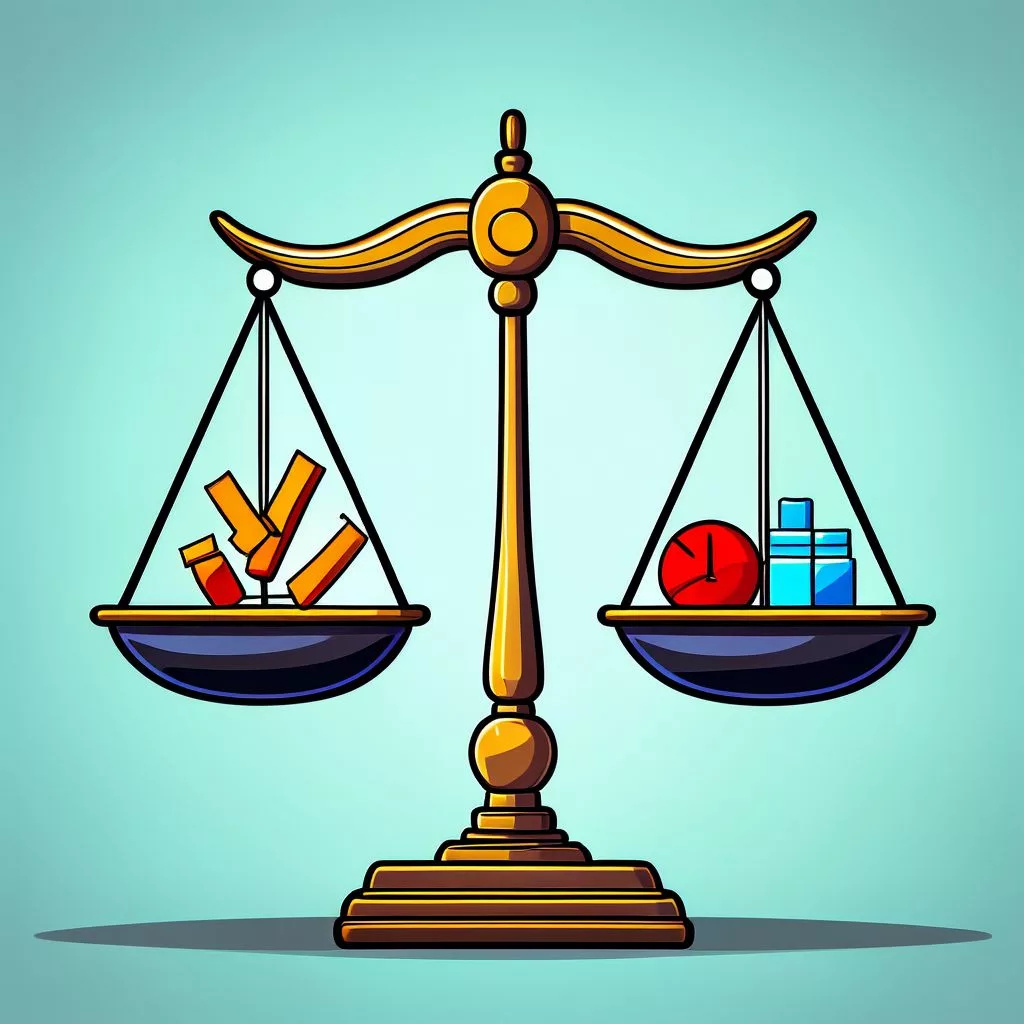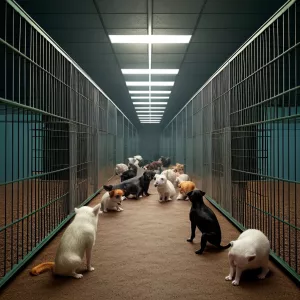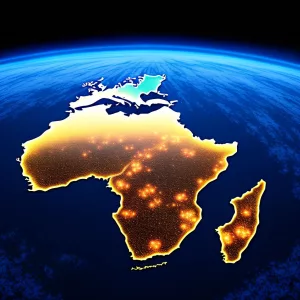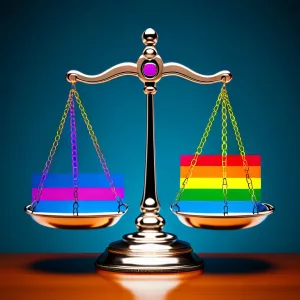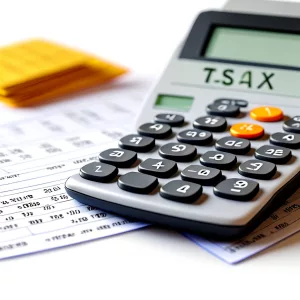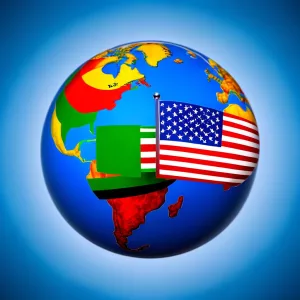Cyril Ramaphosa, the President of South Africa, has boldly declared that his party, the African National Congress (ANC), will not let businesses dictate government decisions. He insists that all choices will be made for the people, not for wealthy business leaders. This strong statement comes after business figures expressed worries about political tensions, especially concerning a coalition government. Ramaphosa’s commitment to the people’s needs shows the ANC’s dedication to democratic values, promising to stand firm amid challenges and ensure the government serves its citizens first. As the ANC navigates these tough times, eyes are on them to see how they uphold their promises.
Electric bicycles, or EBikes, are becoming super popular in South Africa, but new rules are coming to make riding them safer. Starting December 2, 2024, some EBikes will be treated like cars, meaning they need to be registered, licensed, and the riders must have a driver’s license. This change aims to protect pedestrians from the fast and quiet bikes zooming around. With more people using EBikes for commuting and tours, it’s important that everyone knows the new rules and that cities have the right bike lanes and signs to keep everyone safe. The future of EBikes looks bright, but it will require good planning and awareness to make it work!
In Cape Town, Grant Renecle, known as Clean Cut Skolly, staged a playful yet powerful protest against South Africa’s tax policies. With a cheeky sign and a bold attitude, he highlighted the frustrations many feel about rising costs. His funny approach quickly went viral on TikTok, bringing laughter and serious conversation to a serious issue. Renecle’s unique protest shows how humor can spark change and connect people with shared worries about their economy. His message reminds us that sometimes, a little levity is the best way to make a big impact.
South Africa is facing serious accusations that it knew about Hamas’ attack on Israel before it happened. Minister Ronald Lamola strongly denied these claims, calling them “false propaganda” meant to hurt South Africa’s reputation as a champion of human rights. He emphasized that no officials in South Africa were aware of the attack and vowed to protect the country’s standing in the world. This situation comes during already tense relations with the United States, which has imposed tariffs on South African goods, adding to the complexity of global politics. Despite these challenges, South Africa remains committed to its values of justice and human rights.
When helping animals in South Africa, it’s important to choose the right organization. Look for groups that focus on spaying and vaccinating pets, have qualified vets, and are open about their finances. Be cautious, as starting a rescue is easy, but many lack proper oversight, allowing bad practices to thrive. Always visit the shelter to see if animals are cared for well and avoid any organization that pressures you for money or makes adopting pets too simple. By asking questions and being alert, you can support genuine efforts to help animals in need.
Solly Malatsi, South Africa’s Minister of Communications, is passionately fighting for fairness on TikTok. He wants the platform to expand its Creator Fund to include South African creators, who bring so much creativity and energy to global youth culture but currently miss out on financial rewards. Many talented South African creators, like Lasizwe Dambuza, face barriers that prevent them from earning money like their international peers. Malatsi’s push for change aims to ensure that African creativity is recognized and valued, paving the way for a more inclusive digital world. His efforts highlight the importance of appreciating and rewarding diverse voices that shape our culture.
The entry of Starlink, Elon Musk’s satellite internet service, into South Africa is facing tough challenges due to local laws that require foreign companies to partner with local investors. Critics argue that these rules slow down internet access, especially in rural areas. Supporters, like former politician Tony Leon, believe that easing these regulations could boost technology and improve relations with the U.S. However, Starlink recently withdrew its application to operate in the country, raising concerns about how South Africa can attract foreign investment while addressing historical inequalities. This debate highlights the struggle between supporting local interests and embracing new technology for a better future.
The South African housing market is a tale of two cities. Cape Town’s home prices have shot up by 25%, attracting many buyers despite the rising cost of living, while Johannesburg’s prices have climbed more modestly at 12%, making it a tempting option for those seeking better economic stability. Many people are reconsidering where to live, with some returning to Johannesburg for a sense of comfort and affordability. As economic pressures weigh heavily, both cities tell a story of resilience and adaptation as South Africans navigate their changing world, searching for a place they can call home.
Investing in South Africa doesn’t have to be scary or costly! You can start with as little as R100, making small, regular investments like in ETFs or fractional shares. The key is to spread your money across different assets to protect against risks and focus on longterm growth instead of chasing quick riches. By staying consistent and patient, anyone can build wealth over time, turning simple beginnings into a bright financial future!
South Africa is changing its rules about cannabisinfused foods after discussions with President Cyril Ramaphosa. This shift comes as many small business owners were upset by previous bans that stopped them from selling their products. While the health department wanted stricter controls for safety, there’s a push to recognize the economic benefits of cannabis. As the country finds a balance between health concerns and economic growth, it faces challenges and opportunities in shaping a new cannabis industry that respects its cultural roots. The future holds promise if the government can work with all voices to create fair and effective policies.
South Africa is making big changes to its marriage laws, aiming for fairness and inclusion. The new Marriage Bill wants to raise the legal marriage age from 18 to 21 and officially recognize samesex marriages. This is part of a plan to bring together different marriage rules into one law that respects the country’s rich culture. Many people are discussing whether 21 is a better age for marriage, as they believe it gives young adults more time to grow and prepare. These changes show South Africa’s commitment to equality and adapting to modern values while honoring its diverse traditions.
As tax season rolls around, South Africans have a chance to save money with some smart but often ignored strategies. They can claim medical aid tax credits, donate to charities for deductions, and deduct home office costs if they work from home. Checking their PAYE deductions can help avoid overpaying taxes, and those with side incomes should register for provisional tax to stay on track. By tapping into these lesserknown tax breaks, taxpayers can keep more of their hardearned cash, especially with potential tax hikes on the horizon.
In South Africa, many people are taking money out of their retirement funds as they face urgent financial challenges at the start of the new tax year. Although withdrawals have surged, a good number of individuals are still choosing to keep their savings, showing they understand the importance of longterm planning. Financial experts are worried about this trend, but they’re also encouraged by the growing interest in retirement savings, as more people are actively checking their accounts online. It’s clear that while some are struggling now, there’s hope that education and support will help them make smarter choices for their futures.
South Africa is at an important crossroads as it searches for a new ambassador to the United States after Ebrahim Rasool’s sudden expulsion. The top candidates are Tony Leon, known for his diplomatic skills and experience, and Lindiwe Sisulu, praised for her commitment to social justice. Leon has a strong background in politics and international relations, while Sisulu brings a fresh perspective focused on equity and fairness. As President Ramaphosa weighs his decision, the outcome will greatly impact the future of U.S.South Africa relations, which are crucial for trade and cooperation.
South Africa is stepping into a bright new world with its digital identity system, making life easier and safer for everyone. This system promises faster ID checks, better access to services like healthcare and banking, and stronger protection of personal information. The upgrade will cut down mistakes in identity verification from 50% to just 1%, helping both government and businesses work faster. By 2025, South Africa aims to replace old ID books with smart IDs for all, paving the way for a techdriven future that connects people and services seamlessly. It’s an exciting time for the country as it embraces technology to boost everyday life!
Ebrahim Rasool’s return to South Africa is a powerful story of strength and hope. Greeted by a joyful crowd at Cape Town International Airport, he showed no regrets despite being expelled from the U.S. for criticizing a controversial political movement. His experience highlights the tension between South Africa and the U.S., showing how the country stands firm in its values, even when faced with challenges. Rasool’s journey reflects South Africa’s ongoing commitment to justice and equality, reminding everyone of its rich history and determination to overcome obstacles on the global stage.

